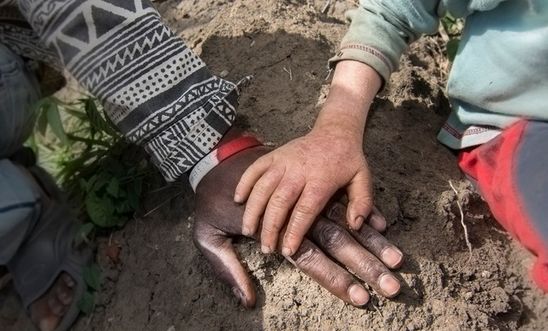
Press releases
Malawi elections: country must end impunity for killings and mutilation of people with albinism

Malawi’s elections will take place in the context of longstanding criminal justice failures and widespread impunity for the killing of people with albinism, Amnesty International said today.
Tomorrow (21 May) Malawians will vote in general elections that will combine presidential, national assembly and local government.
One of the issues dominating the campaign is the unprecedented wave of killings and other human rights abuses against people with albinism. The number of reported crimes against people with albinism in Malawi has risen to more than 163 cases, including 22 murders since November 2014, according to official figures.
People with albinism are targeted for their body parts in the belief that they contain magical powers. The current population of people with albinism in Malawi is estimated at between 7,000 and 10,000, representing a ratio of 1 in every 1,800 persons.
Deprose Muchena, Amnesty International’s Regional Director for Southern Africa, said:
“In Malawi, people with albinism continue to live in fear of being killed or abducted for their body parts. These waves of violent attacks are fuelled by the false and dangerous myth that body parts of people with albinism can make someone rich.
“As Malawians go to the polls, it is time for the country to break with years of impunity for the killings and mutilation of people with albinism; atrocities which remain unresolved owing to criminal justice failures and ineffective criminal investigations.”
Criminal justice failures
Malawian police have raised concerns with Amnesty about delays in concluding trials due to the limited number of senior magistrates qualified to deal with cases relating to people with albinism.
Although serious cases are dealt with in magistrates’ courts, police officers with limited legal training in Malawi are empowered to prosecute suspected perpetrators of crimes. However, they lack forensic skills, financial resources and receive little legal training, resulting in a backlog of cases.
The vast majority of cases involving crimes against people with albinism do not go before a court because of a lack of funds and legal aid support for suspected perpetrators. Even where cases have been brought to court, the accused have often been released due to flawed investigations and a lack of relevant admissible evidence.
On 3 May 2019, Willard Mikaele was sentenced to death for the murder of Mphatso Pensulo, a person with albinism. Amnesty International is opposed to death penalty and it believes that it is a cruel and inhuman form of punishment which will not deter further attacks against persons with abinsim. Malawi needs an effective criminal justice system, including fair trials.
Amnesty has also documented deaths in custody of suspected perpetrators of crimes against persons with albinism, including Buleya Lule who died in police custody on 21 February in Dedza district as a result of torture. Suspects in the killing of Buleya must be brought to justice without delay.
Deprose Muchena said:
“The incoming government of Malawi must prioritise rebuilding the criminal justice system, ensuring that it works for all people, including people with albinism who are some of society’s most vulnerable individuals.
“The first step is to ensure sufficient funding for the judiciary and prioritise training for prosecutors to effectively deal with cases of attacks on people with albinism.
“People with albinism deserve justice for the hateful crimes against them. The impunity must stop.”